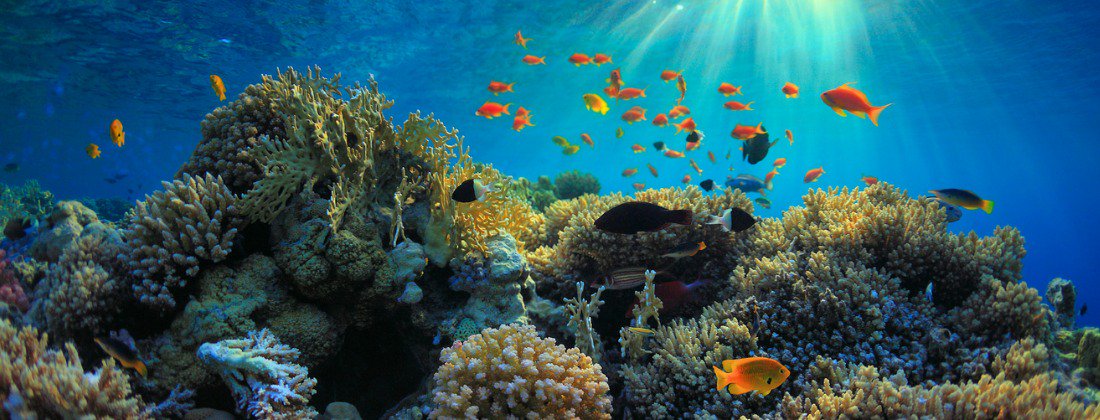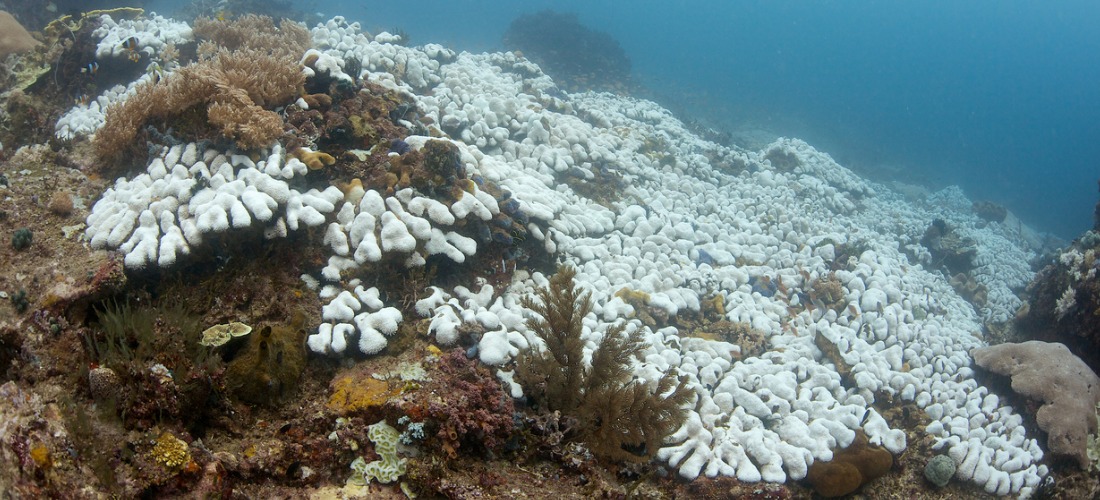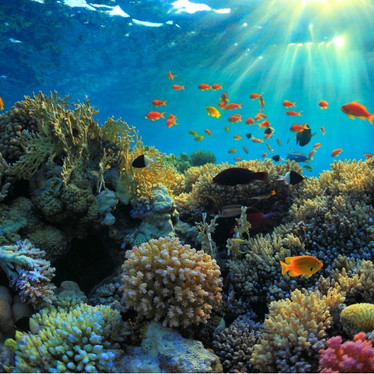
As if all the plastic waste wasn't enough, researchers estimate up to 14,000 tons of sunscreen lotion enters oceans worldwide each year, killing coral reefs. Coral reefs play a fundamental role in the food chain, yet up to 10% are seriously under threat by sunscreen-induced damage.
It’s scary to think that the products we’re applying to protect our skin can be causing harm to our oceans and marine life. The reality is that common chemical sunscreen ingredients are causing catastrophic effects, from bleaching coral reefs to poisoning sea urchins, algae, and fish.
Ingredients Causing Harm
Oxybenzone is one of the main chemical ingredients used in many sunscreens. It works by creating a chemical reaction within our skin, absorbing UV rays from the sun which can then be released as heat. Unfortunately, this chemical ingredient among others, such as Octinoxate (Ethylhexyl methoxycinnamate) and 4-methylbenzylidene camphor, have been shown to kill or bleach coral reefs, even at extremely low concentrations. Just one drop in enough water to fill 6 olympic sized swimming pools has been shown to cause toxic effects. These chemical compounds are known to disrupt the coral’s growth cycles and reproduction, and leave young coral deformed. Oxybenzone in particular has shown to awaken dormant viruses in symbiotic algae, known as Zooxanthellae, which live inside reef-building corals. Zooxanthellae provides the corals with energy through photosynthesis giving corals the vibrant colours we all admire so much. Without them, the corals start to bleach, turn white and eventually die.
Even an “organic” certification doesn’t mean a product is safe for the environment. A number of plant-based oils can actually be toxic to reef organisms. Some natural ingredients used in organic sunscreens such as neem, eucalyptus and lavender oils are also toxic to reef organisms, particularly arthropods.

Reefs at Risk
The amount of sunscreen entering the ocean each year puts coral reefs all over the world at risk. Of course, popular tourist destinations such as the Great Barrier Reef, Hawaii and the Virgin Islands make the coral there especially vulnerable. Some countries are now starting to take the lead, placing a ban on both the use and sale of sunscreens containing harmful chemical UV agents such as oxybenzone. Multiple parks in Mexico’s Riviera Maya and surrounding region including Xel-Ha Park have banned any sunscreen that is not mineral based and biodegradable. This year, Hawaii followed suit, passing a bill prohibiting the sale of sunscreen containing oxybenzone and octinoxate, which comes into effect in 2021. Just this month on November 1st, the small nation of Palau announced that they too would be placing a ban on the use and sale of reef-toxic sunscreens. Their list of prohibited ingredients includes oxybenzone, octinoxate, octocrylene, triclosan and several parabens, all of which will be banned under the new Act which kicks in from January 1st 2020.
Protecting Your Skin AND the Ocean
With New Zealand’s depleted ozone layer and the highest incidence of melanoma in the world, it’s more than important we protect ourselves from the suns rays. The good news is that there are a number of natural and reef-safe sunscreens available which are mineral based and offer great protection. Look for mineral sunscreens containing zinc oxide and titanium dioxide, which are more gentle for sensitive skin, plus have the added bonus of working immediately. Always be sure to check they have been independently tested to ensure they meet their SPF label claim, plus be sure to check that they are coral-reef safe on the label.
One of our favourites is Solimara Truly Natural Sunscreen. With shea butter, jojoba and sweet almond oil, this reef-safe sunscreen is nourishing as well as protective for the skin.
Check out some of our customer reviews:
“I love this sunscreen because it’s reef safe and 2-hour water resistant, so ideal for the beach. It’s thick, but rubs in easily and doesn’t leave a white cast. The scent is gorgeous.”– Je t’aime
“Really pleased with this product as I’ve been looking for a good natural sunscreen for a while! Doesn’t have that whiteness to it that some zinc-based sunscreens do which I like. I wear it under makeup and seems to work well. Spreads really easily, I had expected it to be stickier.” – Anna
“It smells fresh and pleasant suitable for the whole family. It rubs in clear and it does protect my skin from sunburn when using as directed. No nasties! Love it.”– Susan
As part of HealthPost’s Good Ingredients Promise and to ensure that we only stock the healthiest products, all sunscreens that we stock have had independent testing to ensure they meet the SPF label claim. We will only stock sunscreens that have undergone rigorous independent testing to verify any claims made about the UVA and UVB protection, as well as the SPF rating, and water resistance.
Remember, in order to be sun safe, it’s also essential to consider seeking shade at peak times of sun exposure. Reapply sunscreen throughout the day, especially after being in the water. Wear loose, light clothing that covers skin and wear a wide brimmed hat.
Shop Solimara Truly Natural Sunscreen and our natural sunscreen category online.

